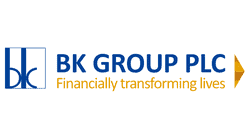Rwanda’s underbanked retail and commercial markets represent significant growth opportunities for Bank of Kigali (BK), Rwanda’s leading commercial bank. Dr. Diane Karusisi, BK’s CEO, discusses the bank’s growth, digital innovation and market expansion strategy.

Global Finance: What are the main drivers of Bank of Kigali’s recent growth?
Diane Karusisi: When Bank of Kigali was formed in 1966, it established a strong foundation for growth that has allowed us to develop strategically with strong positions in key market segments. As a result, BK has grown to become Rwanda’s leading bank with a comprehensive range of market-leading, innovative financial services for businesses and individual customers.
Our recent growth has been fueled by strong increases in non-funded income, achieved through fees for transactions, trade finance products, factoring and FX growth. This includes loan growth leading to interest revenues, especially from corporates and government.
Additionally, we continue to provide support to corporates, SMEs and NBAs recovering from ongoing economic impacts of COVID. Our rapid COVID response strategy and expedited digitalization ensured that clients have the latest digital tools to meet their banking needs. Our COVID-related loans, which provide much-needed funding to business customers, decreased to 1.3% of gross loans in 1Q22 from 1.7% at the end of 2021.
Recovery on bad loans also contributed to improved asset quality, as our NPL ratio and cost of risk decreased to 5.2% and 0.7% in 1Q22 from 8.0% and 4.7% in 1Q21, respectively.
GF: What are the major market opportunities for BK in Rwanda’s banking sector?
DK: A large percentage of Rwanda’s population is unbanked and in need of payment solutions and micro loans, representing a significant market BK can tap into for future growth.
We are also leveraging our network and technology in Rwanda’s agricultural sector, which is barely financed by the banking sector.
SMEs are also underfinanced due to risk. Our revamped SME strategy includes customizing products, leveraging data to analyze customer behavior so we can extend credit.
We also see opportunities for leveraging data and analytics to grow wallet share with companies and retail customers. These include cross selling, enhancing the customer experience and advanced cash management tools that serve clients end-to-end and reduce handling of cash.
Addinionally, we see strong market opportunities from partnerships with payment providers, telecoms and SACCOs, the small-scale savings and credit cooperatives Rwanda established in 2009.
GF: What are BK’s most significant banking innovations?
DK: Our transformation journey is creating platforms for receiving customer feedback and measuring our NPS to improve bank services. We are developing new products in house, customized to client needs based on usage and data. We also migrated to a new T24 Transact core banking platform that enhances our capability to address customers’ needs.
Our Aheza Transformation Program enabled digital capabilities through Temenos Transact R20 model bank, FCM, Temenos Data Lake and Oracle Cloud Fusion Enterprise Resource Planning (ERP).
The T24 Transact R20 Model Bank is our signature innovation, introduced through Temenos Solutions. It enables our retail and corporate banking, front office, digital channels, payment hub and infrastructure to operate 24/7. As a result, automated and existing processes improved up to 70%, automation of commissions and fee collection reached 95% and STP processing increased to 60%.
In addition, we realigned resources to support BK’s new core banking system. By automating processes, over 90 FTEs moved from back-office to front-line support, enabling us to produce financial reports daily instead of monthly. We improved customer service scores while simultaneously reducing work days by three hours.
FCM is a financial crime mitigation solution we developed with key risk control modules, such as Suspicious Activity Prevention and Know Your Customer. BK is Rwanda’s first bank compliant with financial crime mitigation controls, transaction screening, KYC and anti-money laundering protocols.
Other BK innovations developed based on our new capabilities include:
- Customers can transact anywhere, anytime 24/7.
- Border branches are able to operate 24/7.
- New in-house built mobile app and Internet Banking that enable customers to transact with their smart phones anywhere, anytime.
- New capabilities that enable us to interact and integrate with third parties, enabling new services and automation within the bank.
- New capability to standardize operating procedures and e-training for staff through a GIEOM platform.
- Ability to start building analytics to support new products and make quick decisions.
- Ability to automate our Enterprise Resources to support finance, human capital management and supply chain management.
GF: How is the T24 core banking system supporting BK’s future strategy?
DK: Our T24 Transact system core banking and data management capabilities enable us to deliver a smooth customer experience with improved risk management.
T24 is instrumental to our digital strategy and extends our market reach. We are realigning our operating model and building capacity, enhancing operational efficiency, including reducing the cost/income ratio, and increasing income through system-embedded controls and new products. Our new core system also improves our risk management framework and creates an exceptional banking experience for our customers, which is essential to future growth.
Sponsored by:
